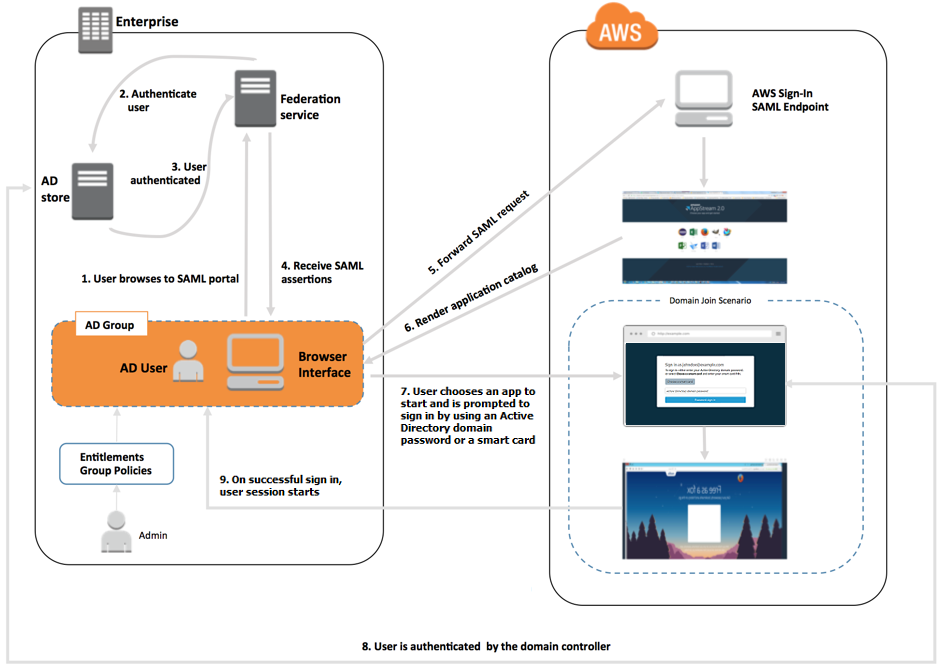Overview of Active Directory Domains
Using Active Directory domains with WorkSpaces Applications requires an understanding of how they work together and the configuration tasks that you'll need to complete. You'll need to complete the following tasks:
-
Configure Group Policy settings as needed to define the end user experience and security requirements for applications.
-
Create the domain-joined application stack in WorkSpaces Applications.
-
Create the WorkSpaces Applications application in the SAML 2.0 identity provider and assign it to end users either directly or through Active Directory groups.
For your users to be authenticated to a domain, several steps must occur when these users initiate an WorkSpaces Applications streaming session. The following diagram illustrates the end-to-end user authentication flow from the initial browser request through SAML and Active Directory authentication.

User Authentication Flow
-
The user browses to
https://applications.exampleco.com. The sign-on page requests authentication for the user. -
The federation service requests authentication from the organization's identity store.
-
The identity store authenticates the user and returns the authentication response to the federation service.
-
On successful authentication, the federation service posts the SAML assertion to the user's browser.
-
The user's browser posts the SAML assertion to the AWS Sign-In SAML endpoint (
https://signin.aws.amazon.com/saml). AWS Sign-In receives the SAML request, processes the request, authenticates the user, and forwards the authentication token to the WorkSpaces Applications service. -
Using the authentication token from AWS, WorkSpaces Applications authorizes the user and presents applications to the browser.
-
The user chooses an application and, depending on the Windows login authentication method that is enabled on the WorkSpaces Applications stack, they're prompted to enter their Active Directory domain password or choose a smart card. If both authentication methods are enabled, the user can choose whether to enter their domain password or use their smart card. Certificate-based authentication can also be used to authenticate users, removing the prompt.
-
The domain controller is contacted for user authentication.
-
After being authenticated with the domain, the user's session starts with domain connectivity.
From the user's perspective, this process is transparent. The user starts by navigating to your organization's internal portal and is redirected to an WorkSpaces Applications application portal, without having to enter AWS credentials. Only an Active Directory domain password or smart card credentials are required.
Before a user can initiate this process, you must configure Active Directory with the required entitlements and Group Policy settings and create a domain-joined application stack.